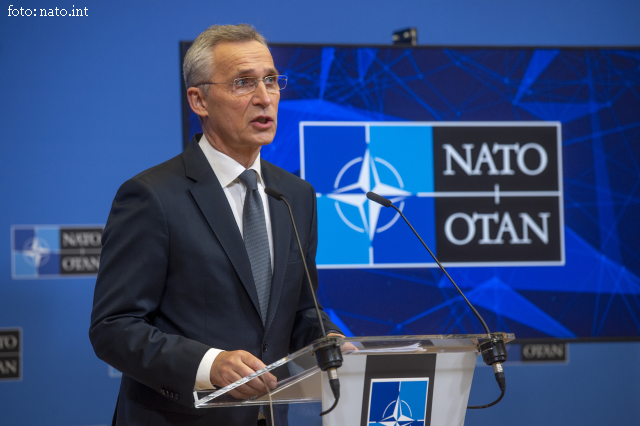After four hours of talks in Brussels, Wednesday’s
NATO-Russia Council yielded no concrete measures with a view to solving the
military crisis generated by Moscow and its alleged security claims. Russia
says it has no intention to invade Ukraine, but it wants to stop NATO
enlargement and the withdrawal of Allied forces from Central and Eastern European
countries that joined NATO after 1997. According to NATO Secretary General,
Jens Stoltenberg, the round of talks in Brussels proved useful to both parties,
although the Allies have rejected the possibility of compromising on any of the
Alliance’s fundamental principles, including the territorial integrity of every
European country. Accordingly, Russia was told that any negotiation regarding
its request to prevent NATO from expanding would be ruled out. It was also
given a firm no regarding its call for NATO to withdraw its troops from
Eastern members, which would virtually leave the area vulnerable.
In fact,
Secretary Stoltenberg explained that the whole idea of defense and deterrence,
including NATO’s exercises and presence on the eastern flank, have been in
response to Russia’s growing aggressiveness and its obvious willingness to use
armed force to modify the borders of neighboring states. In this context,
Moscow was told that, should it invade Ukraine again, the Allies this time will
provide military support to Kiev, instead of just passing sanctions against the
Russian Federation. Therefore, NATO has again called on Russia to pull out its
soldiers deployed on the Ukrainian border in recent months. The only possible
concession to Moscow would be for NATO not to deploy certain missile systems in
Europe. Romanian Mircea Geoană, NATO deputy secretary general,
explained that the anti-ballistic missile shield facilities set up in Romania
and Poland do not fall under the same category.
They serve no offensive purpose against the Russian
Federation, which is why they will be excluded from any possible agreement.
Conversely, the Russian Federation has mobilized a wide variety of ballistic
systems and other types of equipment, including state-of-the-art technology,
close to NATO borders. This is a major concern for us.
In Romania, at the annual meeting of diplomats held in
Bucharest, president Klaus Iohannis said boosting the US military presence in
Romania remains a key objective in the face of growing security challenges.
Romania needs a stronger deterrence and defense posture, and the recent
security developments have showed they risk affecting Euro-Atlantic space as
well. The president used this point to stress the importance of trans-Atlantic
relations. (VP)
